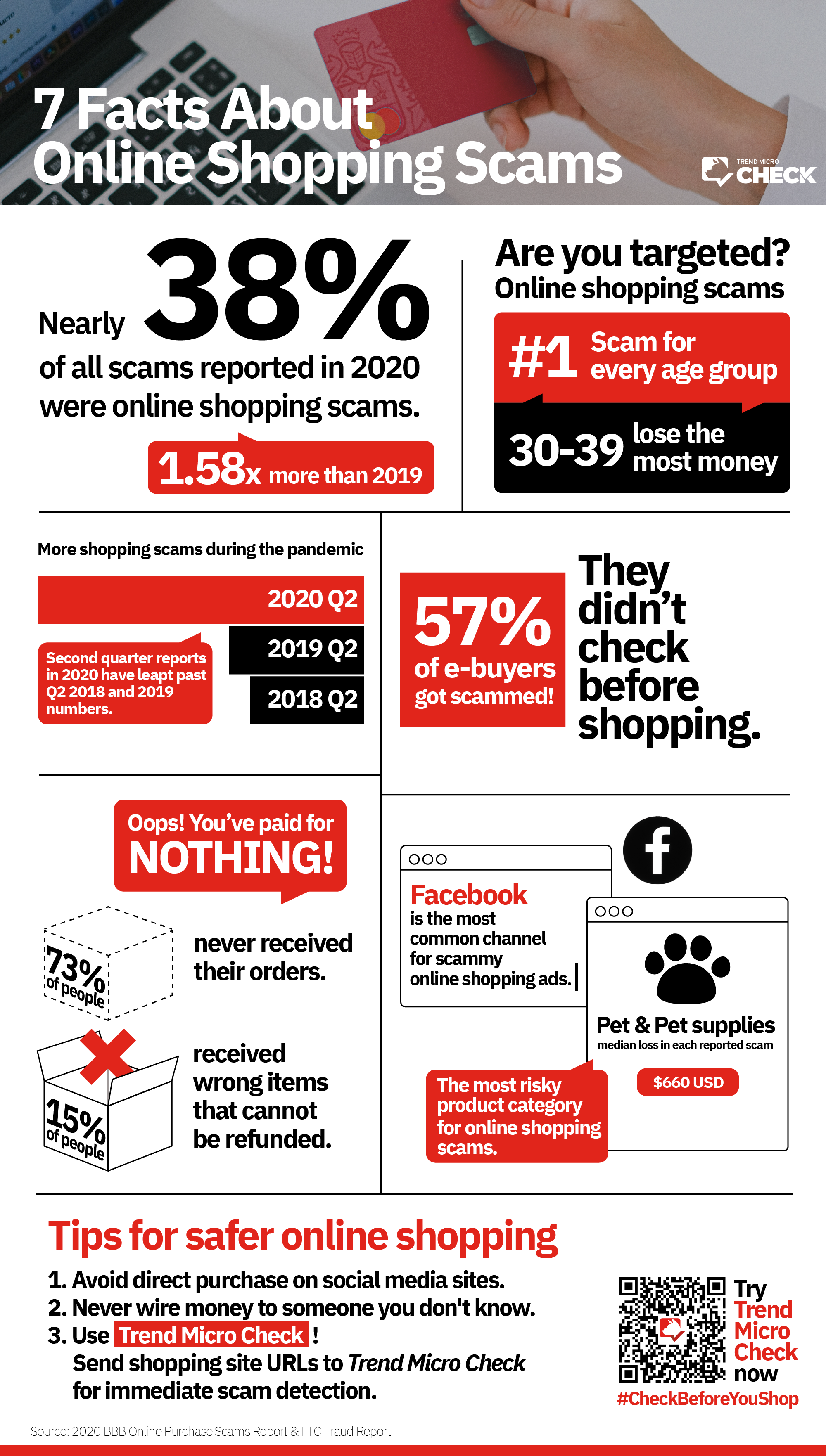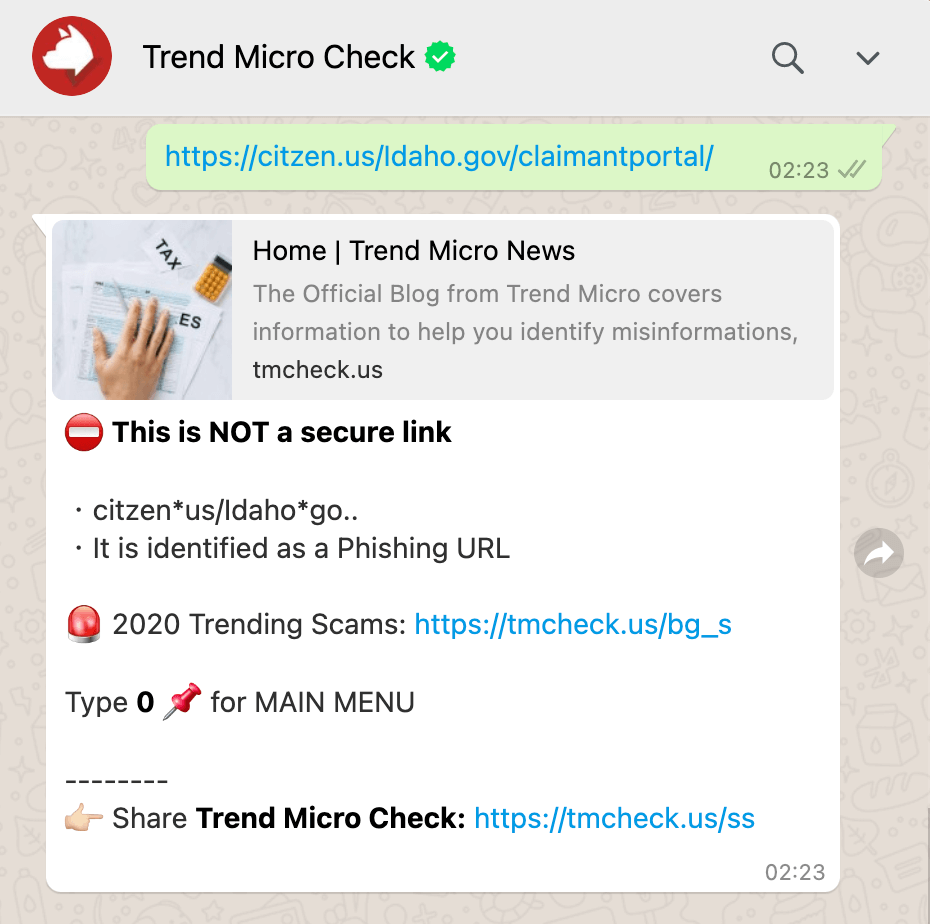‘Tis the season be jolly and to shop! Have you done your homework about shopping safely online? Online shopping is the new normal. Many people chose online shopping instead of crowded shopping malls even BEFORE the pandemic began. This holiday season, you should be extra cautious – think twice before you type in your credit card number when you find a killer deal online. Scammers can deceive you into doing things you will regret later on.
Shocking Facts About Online Shopping Scams
1. Online shopping scams have increased dramatically during the pandemic.
At a time when the need for online shopping has soared due to COVID-19, more and more cases of online shopping scams are being reported.
According to the Better Business Bureau (BBB), “…so far in 2020, 37.9 percent of all reports to BBB Scam Tracker were online purchase scams, up from 24.3 percent in 2019.” This means that the number of online shopping scam reports up to the third quarter of 2020 is already 1.58 times larger than the total number recorded in 2019.
At the same time, the Federal Trade Commission (FTC)’s public data shows that the total reports of online shopping scams during the second quarter of 2020 were far more than that in the second quarters of 2018 (35,189 reports) and 2019 (43,419 reports).
2. Many people are NOT aware of the risks of online shopping.
The BBB’s survey reports that “…out of the 57 percent who did not research the website or business via an independent source before making a purchase, 81 percent lost money,” which means that more than 46% of this group suffered a financial loss from online shopping scams.
The same survey pointed out that the rate of people who lost money due to online shopping scams has been increasing. The BBB noted that “80.5 percent of consumers reporting online purchase scams in 2020 lost money, a steady rise from 71.2 percent in 2015 when we began collecting data.”
3. Online shopping scams affect every generation.
According to FTC’s data, seniors over 80 have the highest median loss per scam- $1,200 USD. People who are between the ages of 30 to 39 suffered the most from online shopping scams as they rely on eCommerce more than other age groups.
4. Facebook is a huge source of online shopping scams.
Social platforms are favored by scammers because it is easy to show fraudulent ads to audiences. “The top online platforms where consumers who lost money to an online purchase scam first learned about the product include Facebook (30%), Google (28%), a specific website (17%), and Instagram (9%),” according to the 2020 BBB Online Purchase Scams Report.
5. Fake shipment tracking information is a common tactic in online shopping scams.
The BBB’s survey notes that, “59 percent reported receiving shipment tracking information after making the purchase. Of those receiving shipment information, 54 percent reported that the tracking information was fake.”

How can you safely shop online?
- Always check before you shop.
It is very important to check the security of the website where you plan to shop. You should check if the web address of the website starts with HTTPS instead of HTTP. Or you can simply send the website address to ScamCheck for immediate verification.
Use Trend Micro ScamCheck to check these:- “Too good to be true” campaigns
- Ads with typos and odd wordings
- Website addresses
- Websites with incorrect contact details
- Unusual customer reviews
- Strange payment methods
- Unclear policies/Terms & Conditions
1. After you’ve pinned the ScamCheck browser extension, it will block dangerous sites for you automatically:

2. Send links or screenshots of suspicious text messages to ScamCheck on WhatsApp for immediate scam detection.

- Avoid direct purchases on social platforms.
Social media is full of irresistible deals & offers, but it is best not to shop from an online platform – there are often no guarantees when it comes to disputes, returns, or refunds.
- Never wire money to someone you don’t know.
In some online shopping scams, the scammer (‘merchant’) asks the buyer to use payment methods other than the ones listed on the website, such as bank transfers or apps like Venmo, to complete transactions, claiming that there were technical difficulties with the original payment.
Read more tips for safer online shopping: 3 Key Principles for Safer Online Shopping
- Add an extra layer of protection to your device with Trend Micro Maximum Security! It includes Web Threat Protection, Ransomware Protection, Anti-phishing, and Anti-spam Protection to help you combat scams and cyberattacks. Click the button below to give it a try:
